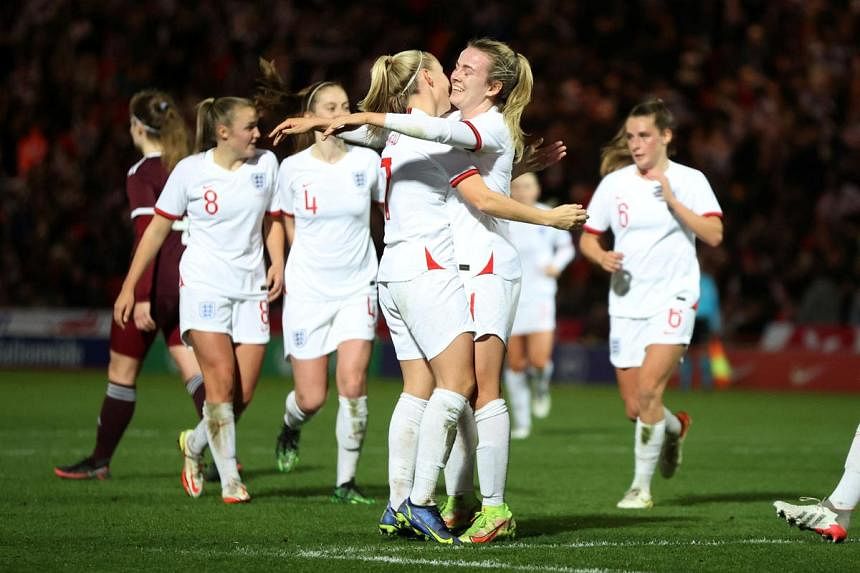Women's soccer teams have been ditching white shorts as part of a growing trend aimed at tackling period anxiety in sport, and new research shows that women's teams who play in white perform worse.
Alex Krumer, a sports economist and professor at Molde University College in Norway, studied the results of World Cups and European Championships between 2002 and 2023, and found women's teams wearing white shorts averaged 1.27 points per game compared to 1.57 points by teams in dark colours. Men's teams in white shorts showed no drop in performance.
"This is one of the easiest conclusions for policy advice that I can give -- nothing to do with budgets, nothing to do with money. Don't play in white shorts, full stop," Krumer said in an interview with Reuters. "So easy to implement. And then women will feel good about it. And you will increase your probability of winning. It's win-win. So easy."
Krumer, whose peer-reviewed paper "On the cost of wearing white shorts in women's sport" was published recently in the Journal of Behavioral and Experimental Economics, was curious about whether women's anxieties about leakage affected their performance.
"There is zero effect for men ... they just don't care because they don't have this menstrual anxiety or leakage anxiety," he said.
The issue made headlines ahead of last year's Women's World Cup when several countries including England and New Zealand ditched white.
"Anything that relieves the mental stress of the players is a good thing. If it's one less thing to worry about, then why not?" England defender Lucy Parker said when the change was announced, while team mate and forward Lauren Hemp called it a "massive step in the right direction".
Manchester City, West Bromwich Albion and Orlando Pride also binned their white shorts, while complaints from female tennis players around Wimbledon's all-white dress code prompted the Grand Slam's organisers to relax rules to allow women to wear dark undershorts.
England's Red Roses rugby team, on the other hand, decided against a switch, arguing menstruation should not be a taboo subject and women should not have to switch to make others comfortable.
Nineteen of the 32 teams at last year's Women's World Cup played at least one match in white, Krumer said.
Krumer used regression analysis and controlled for other factors such as team ranking and home advantage. When he unveiled his working paper back in October, Denmark's women's team announced they were dropping their white shorts soon after.
The issue around period anxiety stretches beyond international and professional sport. Numerous studies around the world show girls drop out of sport at a far greater rate than boys.
"And if you force them to play in white shorts, especially at the age of 14, 15, when they really care about what people will think ... that's a pity," Krumer said. "And it's taboo," he added. "People don't want to talk about it, but 50% of the population has it. What's the problem?
"Sport can (also) effectively promote awareness of social issues in general, including those concerning the menstrual cycle."
Part of Krumer's interest in the topic stemmed from what he said is a lack of research in women's sport compared to men.
"We really have some social responsibility as scientists to investigate women's sports because women's sport is heavily under-investigated," he said. REUTERS

